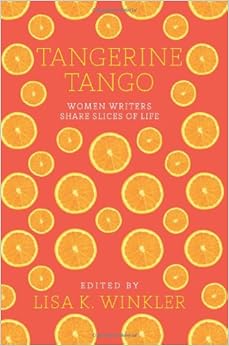Like most children, Elie Wiesel grew up loving stories, especially horror stories that he found funny. He never imagined his writing wouldn’t include those kinds of tales, that instead, his writing would portray real horror.
Expressing his gratitude for receiving the 2012 Kenyon Review Award for Literary Achievement, Wiesel, 84, described how he still feels “thirsty” for words to relay the horrors of the Holocaust. Despite the countless volumes of literature, despite the six million copy -worldwide distribution of his autobiographical first book, Night, which recounts his experience as a prisoner in Nazi concentration camps, Wiesel worries that “what needs to be said can’t be written,” rendering the enemy victorious.
The Holocaust survivor, Nobel Peace Prize winner, prolific author, political activist and college professor wonders if he succeeded. “The truth is I am not sure I can consider myself a true witness. I don’t have the words for my testimony,” he said.
The Kenyon Review, a literary magazine founded at Kenyon College in 1939 by poet and critic John Crowe Ransom, presented the award, in its 12th year honoring writers. The proceeds from the gala dinner benefit the summer Young Writers programs.
Though I’ve met Holocaust survivors, have seen tattooed numbers on forearms, heard stories, and taught the Holocaust to middle school students, often using Night as text, meeting and listening to Wiesel brought me, and many others in the room, to tears. I reread Night the day before; its impact equally as chilling as when I first read it years ago.
Born in Sighet, Romania, (then Transylvania), Wiesel and his family were removed from their home in 1944 and transported first to the Auschwitz concentration camp and then to Buchenwald. Night chronicles his experience. He was separated from his mother and sister who perished, and struggled to remain with his father, who he witnessed being beaten to death shortly before Wiesel’s liberation by the U.S. Army in April 1945. Wiesel, 16, was relocated to Paris, where he studied and became a journalist.
Publishers initially rejected Wiesel’s book, written in Yiddish and titled “And the World Remained Silent,” saying people didn’t want to read about such horrors, he said. Subsequently translated into French and English and renamed, the book’s initial 3,000 copy print run took five years to sell.
Wiesel concluded reaffirming his belief in literature, in how art reflects truth, even if that truth is filled with horror. He spends much of his time fighting intolerance and indifference around the world.
In his Nobel Peace Prize Acceptance Speech, December 10, 1986, Wiesel said:
“I swore never to be silent whenever and wherever human beings endure suffering and humiliation. We must take sides. Neutrality helps the oppressor, never the victim… Whenever men and women are persecuted because of their race, religion, or political views, that place must become the center of the universe.”



What an honor to meet him! I still sometimes feel “there are no words” to describe such atrocity. And yet it starts with words, dehumanizing words that will lead to a loss of civil rights…and sometimes genocide. Even today, which makes me sad.
LikeLike
True.. and how we used to tell our kids.. sticks and stones… but words can hurt, a lot.
On Fri, Nov 9, 2012 at 12:28 PM, cyclingrandma
LikeLike
What did you say when you met him? It’s time like that when this talker is tongue-tied.
Lovely post. Wonderful man of the ages.
LikeLike
Thanks. It was a real privilege to be in the same room.
On Fri, Nov 9, 2012 at 12:37 PM, cyclingrandma
LikeLike
Thanks so much for the reminder of this amazing man and literature. I remember so well reading this book many times in school and chose to keep my copy of the book forever. What an honor for you to meet him.
LikeLike
It does leave you speechless to meet and listen to someone you hold in high reard in person. He is someone I always wanted to meet.
LikeLike
What an incredible honor, a huge thrill to be in Mr. Wiesel’s presence. Wow!
LikeLike
Yes it was.
On Fri, Nov 9, 2012 at 2:51 PM, cyclingrandma
LikeLike
It’s hard enough to have lived what he lived, but to write about and intitially be told that no one wants to hear about it! What a lonely and unvalidated place that must have been for him sometimes.
LikeLike
Really puts all the modern day complaints in perspective.
On Fri, Nov 9, 2012 at 5:26 PM, cyclingrandma
LikeLike
I remember a friend of my parents when I was young. She was a stunning-looking blonde woman, tall and willowy. My mother told me two things I never forgot about her. She had a number tattooed on her arm and would never have children because the Nazis had carried out experiments on her in a concentration camp.
LikeLike
Reasons why we can’t forget.
On Fri, Nov 9, 2012 at 9:50 PM, cyclingrandma
LikeLike
What an honor you were able to meet someone I consider a hero. I so admire his ability to write what most of us cannot imagine. Thank you for sharing this post and your memories.
LikeLike
It was really incredible to see him. I was a bit tongue-tied. I didn’t really meet him, just for the photo, and said, “thank you for everything.” Seems sort of lame.
On Sun, Nov 11, 2012 at 1:13 AM, cyclingrandma
LikeLike
Reblogged this on cyclingrandma and commented:
RIP, Elie Wiesel. Your words resonate now more than ever.
LikeLiked by 1 person
I had the good first fortune of listening to Elie speak about 10 years ago. I think he was/is a profit and a saint.
LikeLiked by 1 person
Agree. Thanks for stopping by.
LikeLike
Such a loss. We were able to visit his childhood home in Romania last summer. Beautifully written, Lisa.
LikeLiked by 1 person
Thank you, Naomi.
LikeLiked by 1 person